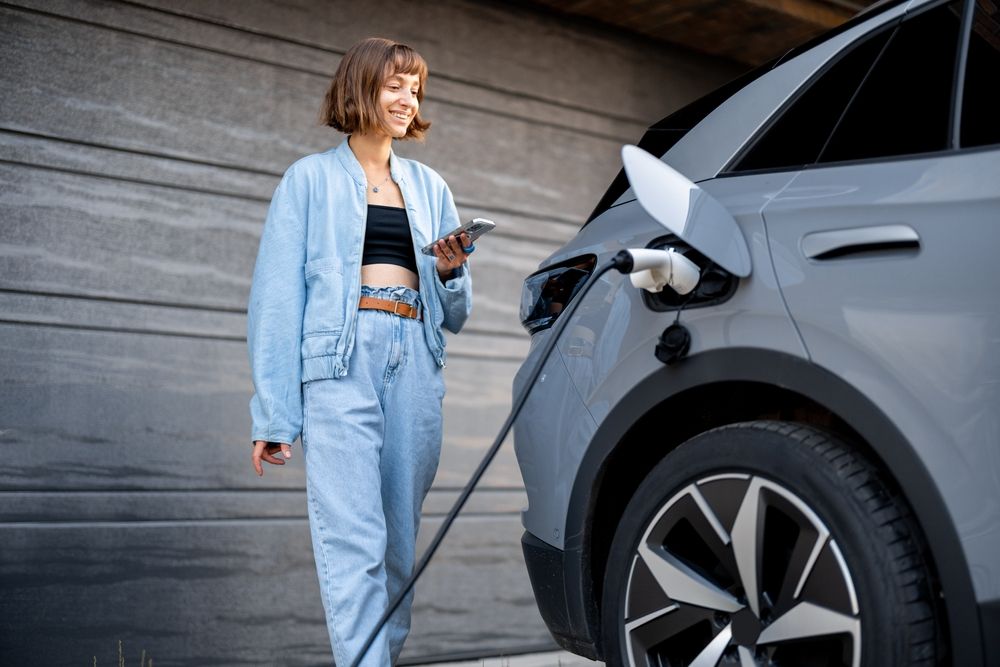As electric vehicles (EVs) become increasingly popular, more used options are hitting the market. Buying a secondhand EV can be a smart, eco-conscious, and cost-effective move — but only if you know what to look for. Unlike traditional gas-powered cars, EVs have unique features and potential concerns that require a slightly different approach when buying used.
Before making the switch, here’s a comprehensive breakdown of what to check and consider when purchasing a secondhand electric vehicle.
Battery Health and Capacity
The battery is the most valuable component in an EV — and the one with the greatest impact on long-term performance and resale value. Over time, all EV batteries experience some degradation, which means less range than when the vehicle was new.
What to do:
-
Ask for a battery health report or diagnostics from the dealership or owner.
-
Look at the current state of charge and total capacity versus the original range.
-
Avoid models with significant range loss unless the price reflects the degradation.
Charging History and Habits
The way an EV was charged throughout its life can affect battery longevity. Frequent fast-charging, for instance, may degrade the battery more quickly compared to consistent use of slower Level 2 charging.
What to do:
-
Ask how the vehicle was typically charged (Level 1, Level 2, or DC fast charging).
-
Inquire if charging was mostly done at home or public stations.
-
Confirm if the previous owner maintained safe charging practices.
Service History and Warranty
Although EVs have fewer moving parts than traditional vehicles, regular service still matters — especially software updates, brake checks, and battery maintenance. Manufacturer warranties for batteries often last 8 years or more, so it’s important to know if coverage is still active.
What to do:
-
Request a full service history and check for any recalls or major repairs.
-
Verify how much time or mileage remains on the battery warranty.
-
Ensure the car has received software updates if it’s from a brand with over-the-air upgrade capability.
Driving Range and Daily Needs
Used EVs may not have the same range they did when new. Consider your typical driving habits and whether the current range will meet your needs.
What to do:
-
Compare the vehicle’s remaining range with your daily commute or average trip length.
-
Factor in climate: cold temperatures can reduce effective range.
-
Consider if local charging infrastructure supports your use case.
Charging Compatibility
Different EVs use different connectors and charging standards. Make sure the secondhand EV you’re considering can be conveniently charged where you live, work, or travel.
What to do:
-
Confirm the vehicle’s charging port type (e.g., CCS, CHAdeMO, Tesla).
-
Check if it’s compatible with major public charging networks in your area.
-
Consider whether a home charging setup is feasible for you.
Software and Infotainment System
Some older EV models may lack updated software or modern features found in newer vehicles. Certain systems may be outdated or unsupported.
What to do:
-
Test the infotainment system, navigation, Bluetooth connectivity, and backup camera.
-
Make sure the vehicle accepts software updates and hasn’t been locked out of upgrades.
-
Research whether the automaker still supports system improvements for that model.
Vehicle History Report
As with any used car, a clean vehicle history is essential. Accidents, flood damage, or title issues can lead to major headaches down the road.
What to do:
-
Obtain a full vehicle history report (e.g., Carfax or AutoCheck).
-
Look for signs of accidents, odometer rollbacks, or salvage titles.
-
Verify how many previous owners the vehicle has had.
Interior and Exterior Condition
A clean and well-kept vehicle usually reflects responsible ownership. Check for wear and tear that could indicate how the vehicle was treated.
What to do:
-
Inspect the seats, controls, dashboard, and cargo area.
-
Look for exterior signs of damage, mismatched paint, or corrosion.
-
Pay close attention to tires, brakes, and suspension condition.
Test Drive and Performance
An EV should feel smooth, quiet, and responsive on the road. Take the time to assess how it performs in real conditions.
What to do:
-
Test drive the vehicle on city streets and highways.
-
Listen for unusual noises during braking or acceleration.
-
Monitor regenerative braking behavior and accelerator sensitivity.
-
Check that all features (e.g., climate control, driver assist) are functioning properly.
Total Cost of Ownership
Even though EVs generally cost less to maintain, some repairs — especially out-of-warranty battery replacement — can be expensive.
What to do:
-
Factor in insurance rates, expected maintenance, and cost of charging.
-
Compare the used EV’s price with similar models in your area.
-
Look into incentives or rebates for used EVs, which some states or local governments offer.
Questions to Ask the Seller or Dealer
To cover all your bases, here’s a checklist of questions to ask:
-
What’s the current battery range and degradation level?
-
Has the vehicle ever had battery or charger issues?
-
Is the battery warranty still valid?
-
Has the software been updated recently?
-
Was the car involved in any accidents?
-
How was the vehicle typically charged?
-
Are all original accessories and chargers included?
Red Flags to Watch Out For
Walk away or proceed with caution if you notice any of the following:
-
Sudden or unexplained drops in range
-
Refusal to share battery diagnostics or vehicle history
-
Evidence of water damage in the battery area
-
No service records or documentation
-
Vehicle sold at a price that seems too good to be true
Buying a used electric vehicle can be a fantastic choice — both financially and environmentally — if you approach the process with a checklist and clear expectations. Prioritize battery health, software support, and overall condition, and always make sure the vehicle fits your lifestyle and charging access.
With the right due diligence, a secondhand EV can deliver years of clean, quiet, and cost-effective driving.





